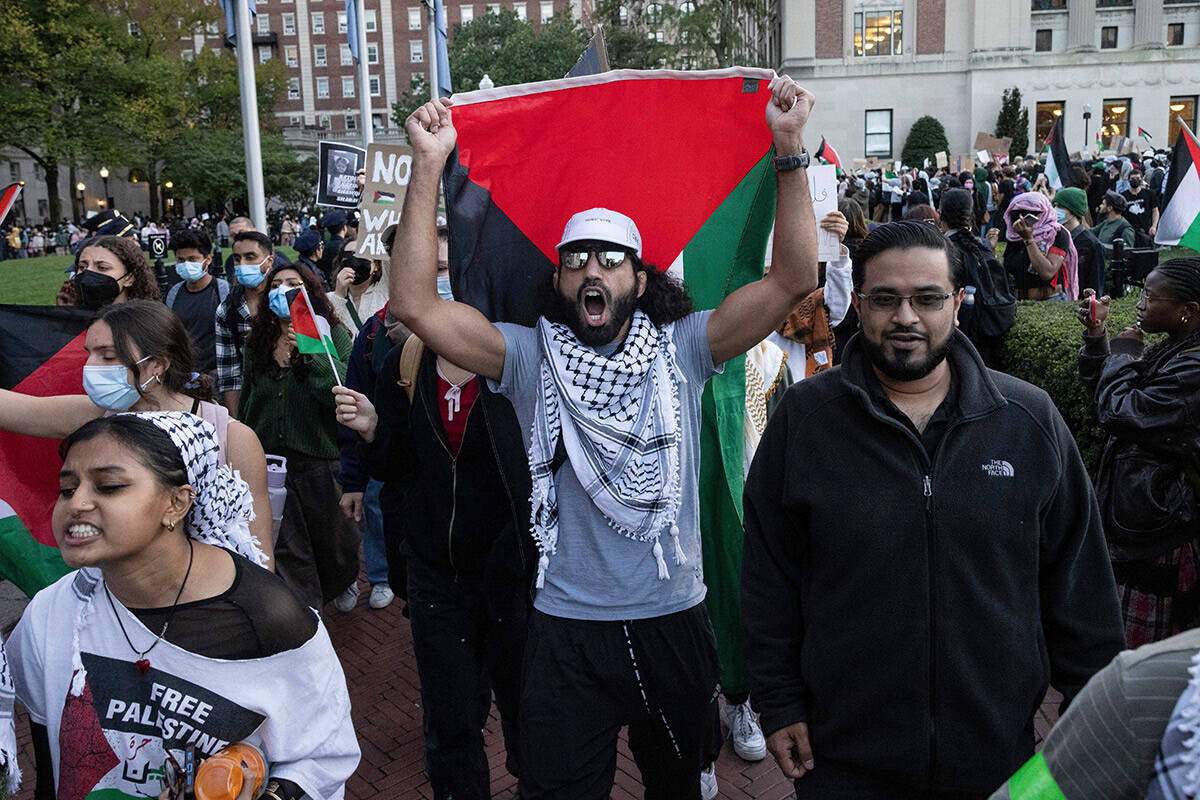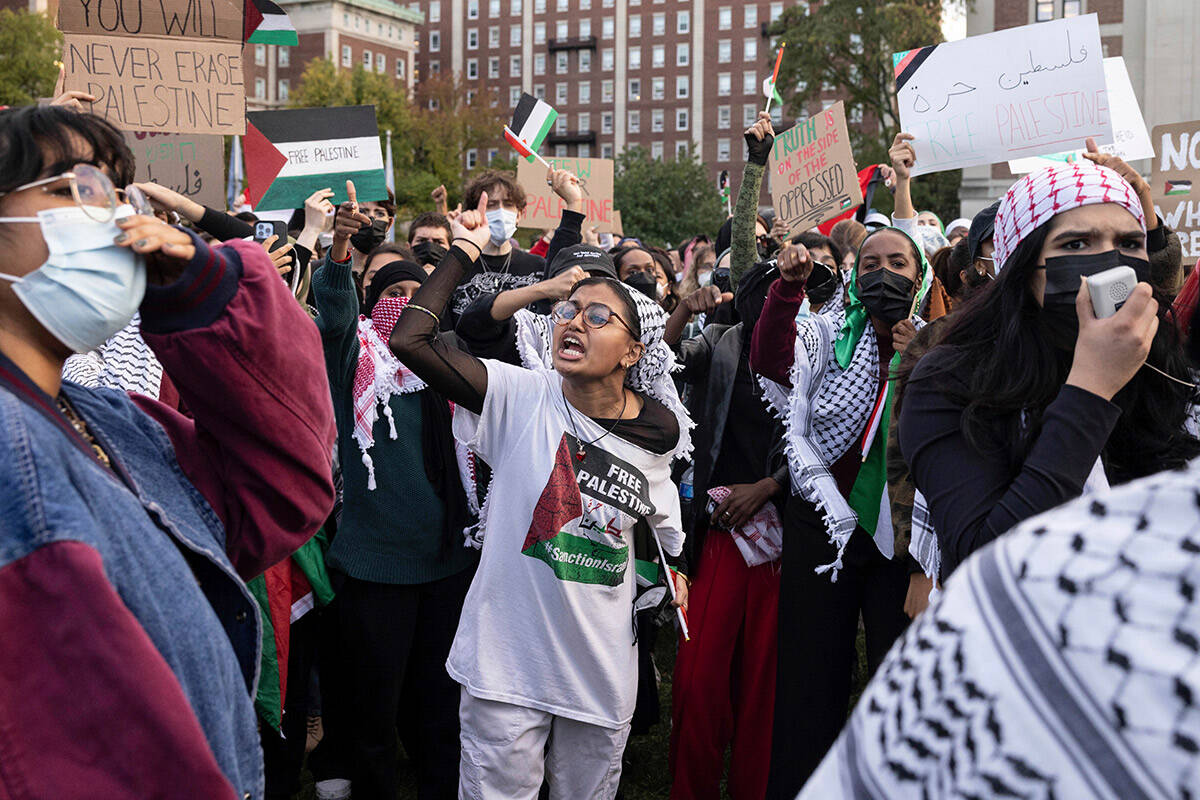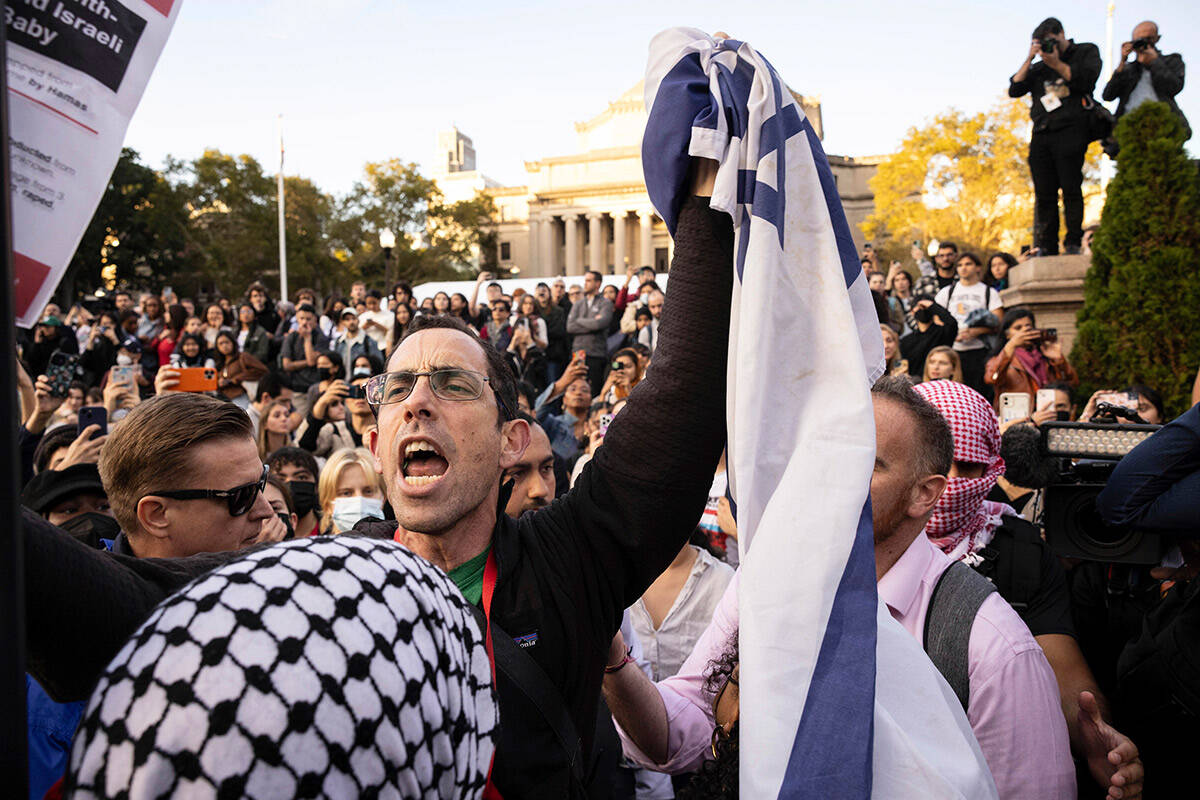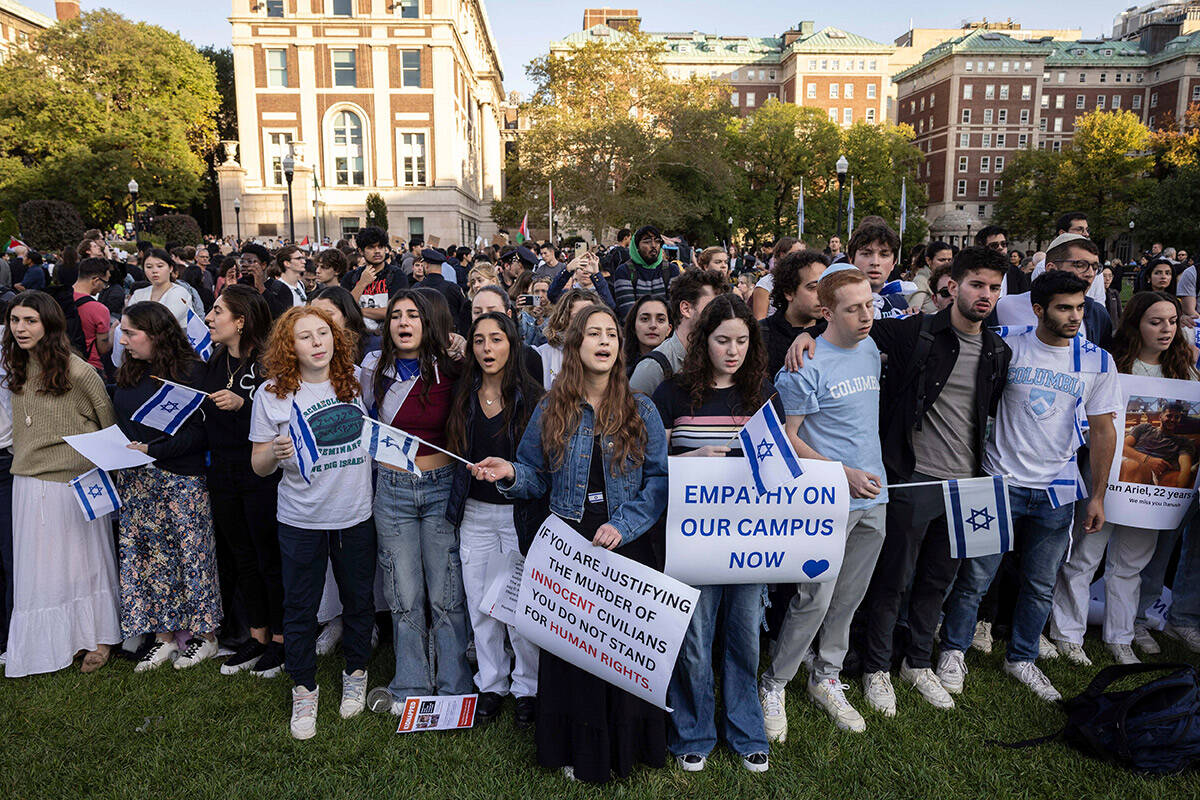The Israel-Hamas war has roiled US campuses. Students on each side say colleges aren’t doing enough
As the death toll rises in the Israel-Hamas war, so has contention at America’s colleges and universities.
Many Jewish students and their allies, some with family and friends in Israel, have demanded bold reckonings and strong condemnation after the attacks by Hamas terrorists, who stormed from the blockaded Gaza Strip into nearby Israeli towns, savagely killing more than 1,300 people, most of them civilians, including children, and taking hostages back to Gaza.
Meanwhile, some Muslim students have joined with allies to call for a recognition of decades of suffering by Palestinians in Gaza, plus condemnation of the response by Israel. After the Hamas attack, Israel launched a total blockade of Gaza; airstrikes have flattened buildings and homes, killing civilians and forcing hundreds of thousands to evacuate.
On many campuses, these students agree on one thing: Their colleges, which are increasingly staking out positions of neutrality, have not done enough to support them.
“This is an incredibly difficult free speech moment on campuses, where both sides have deeply passionate, entrenched, intractable views,” said Alex Morey, director of campus rights advocacy at the Foundation for Individual Rights and Expression, which is recommending that colleges try to remain institutionally neutral.
“We want to create an ideal climate for debate and discussion on campus, and the only way we can do that is if we step out of the debate,” Morey said.
Some of the most notable recent disputes have come at Harvard University, where the Palestine Solidarity Committee student group released a statement holding Israel “entirely responsible for all unfolding violence,” cosigned by a few dozen other student organizations. At least one student had a job offer rescinded as a result of the statement.
Then Accuracy in Media, a conservative group, arranged for a billboard truck to drive around campus showing the faces of students associated with the groups. “Harvard’s leading anti-Semites,” it called them.
Former Harvard President Lawrence Summers, who is Jewish, was critical of university leadership for appearing “at best neutral towards acts of terror against the Jewish state of Israel.”
“In nearly 50 years of Harvard affiliation, I have never been as disillusioned and alienated as I am today,” Summers said on X, formerly known as Twitter.
A day later Harvard President Claudine Gay condemned “terrorist atrocities perpetrated by Hamas” and said that while students have the right to speak out, “no student group — not even 30 student groups — speaks for Harvard University or its leadership.”
Summers joined the university’s Hillel student group later in the week in opposing efforts to “vilify,” as he put it, signers of the anti-Israel statement.
“Such intimidation is counterproductive to the education that needs to take place on our campus at this difficult time,” Harvard Hillel said.
At Yale University, “Free Palestine” messages were written in chalk around campus one night. The following night, some students put up posters of Israelis taken hostage with the word “Kidnapped.”
There was also controversy over social media posts by a professor of American studies, Zareena Grewal, who wrote after the Hamas attack: “Settlers are not civilians. This is not hard.” A petition circulated demanding her removal; Grewal did not respond to a request for comment.
In a statement, the university said it “is committed to freedom of expression” and Grewal’s comments on personal accounts “represent her own views.”
Eytan Israel, a 21-year-old sophomore, said that response fell short.
“Just seeing that, and Yale not doing anything, does feel like a betrayal, even if the statements they’ve been making have been supportive,” said Israel, who is Jewish.
Yet staying neutral is not always easy. Students for whom the conflict is intensely personal want their administrations to recognize how they are affected by traumatic events and use their stature to denounce what they see as moral wrongs.
Colleges across the country have put out statements on the war. Many have faced criticism for not going far enough in condemning Hamas’ attack, or for failing to condemn civilian deaths in Gaza, or for leaving out context and history from the region.
Stanford University, for one, has shifted more toward neutrality as events unfolded.
On Monday, officials at the California school said they were “deeply saddened and horrified by the death and human suffering” in Israel and Gaza and hoped for “thoughtful opportunities for sharing knowledge” on campus. In response, dozens of faculty signed a letter demanding “unambiguous condemnation” of the Hamas attacks.
On Wednesday, Stanford sent an “update” explaining its position on neutrality. Faculty and students “should not expect frequent commentary from us in the future,” college officials said.
The letter from interim President Richard Saller and Provost Jenny Martinez did note an incident in which a lecturer reportedly singled out Jewish students in an undergraduate class, asked them to stand in a corner and told the room that was what Israel does to the Palestinians. The lecturer also reportedly called an Israeli student a colonizer.
The incident is under investigation and the lecturer has been removed, Saller and Martinez said. “Academic freedom,” they said, “does not permit identity-based targeting of students.”
At Columbia University, the campus was closed Thursday as a safety measure as hundreds attended dueling pro-Israel and pro-Palestinian rallies. Some students were angry that a statement from the university president did not go far enough to acknowledge Palestinian deaths.
“Clearly we’re all against violence, but we’re just asking for the lives of Palestinians to be acknowledged as well,” said Nadia Ali, who demonstrated alongside hundreds of peers. Many were dressed in the green, red and black of the Palestinian flag and wearing medical face masks.
Across the Manhattan campus’ main lawn, demonstrators draped themselves in the blue-and-white Israeli flag and held prayer and song circles.
One demonstrator, Yola Ashkenazie, said some Jewish students feel unsafe: “The rise in anti-Semitism on our campus has been abhorrent.”
A day earlier, a 19-year-old woman was charged with assaulting a student in a dispute over posters bearing the names and images of hostages being held by Hamas.
Chris Megerian and Collin Binkley contributed from Washington.
The Associated Press education team receives support from the Carnegie Corporation of New York. The AP is solely responsible for all content.
























